The 5th China Tax Lawyers, Tax Agents and Tax Law Graduate Students Summer Academy(2018)
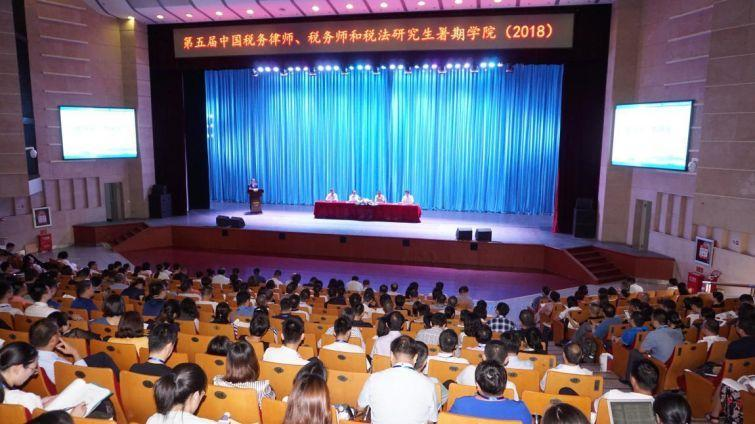
Pictured: The scene of the summer academy
From August 21st to August 26th, 2018, the "The 5th China Tax Lawyers, Tax Agents and Tax Law Graduate Students Summer Academy(2018)" (hereinafter referred to as the "Summer Academy"), which was jointly sponsored by the Professional Committee of Taxation Law of the All-China Lawyers Association, the Training Department of the China Certified Tax Agents Association, and the School of Civil and Commercial Economic Law of China University of Political Science and Law, was successfully opened at Qingdao University International Academic Exchange Center. The Summer Academy was co-hosted by the Center for Tax Law Studies of China University of Political Science and Law, Beijing Hwuason Law Firm, and Huashui Tax Agency.
Since registration for this summer academy was accepted on June 21, it has quickly received support from lawyers associations, tax associations, law firms, tax accounting firms, lawyers, tax agents, university law departments and tax law graduate students across the country. Wide response from all walks of life. As of the registration deadline, the organizing committee of this summer academy has received a total of more than 620 applications from nearly 30 provinces (municipalities) and autonomous regions, including Tibet. In accordance with the principles of fair competition, merit-based admissions, comprehensive balance, and student diversity, 180 people were finally admitted, including 85 lawyers, 75 tax agents, and 20 tax law graduate students. Due to quota restrictions, many outstanding applicants were not admitted.
According to the deployment requirements of the 19th National Congress of the Communist Party of China to fully implement the "legal principle of taxation", by 2020, my country will complete the reform of six major tax categories including value-added tax, consumption tax, and personal income tax, as well as the revision of the tax collection management law. All current tax regulations will be upgraded to tax law. In particular, the Standing Committee of the National People's Congress held on June 19 reviewed the "Draft Amendment to the Personal Income Tax Law" for the first time. my country will establish a modern personal income tax system that combines comprehensive and classified taxation, and the pace of tax legislation will be further accelerated. And with the implementation of the merger of state and local taxes, tax collection and administration reform has been further deepened. International multilateral organizations such as the G20 and OECD are actively promoting in-depth cooperation in global tax governance. The U.S. tax reform has triggered a new wave of global tax reform. The international tax rules system has been comprehensively reshaped. my country's implementation of the "Belt and Road" strategy is facing new opportunities and challenges. . Against this background, the course arrangement of this Summer Academy has taken into account both the cutting-edge issues of domestic tax reform and difficult issues in international taxation, and has taken into account both the macro discussion of current reforms and the micro analysis of individual cases.

Pictured: The scene of the opening ceremony
At 8:30 a.m. on August 21, this summer academy held a grand opening ceremony at the Youth Theater. The opening ceremony was hosted by Liu Tianyong, deputy director and secretary-general of the Financial and Taxation Law Professional Committee of the All-China Lawyers Association and director of Hwuason Law Firm. Li Linjun, vice-president and secretary-general of the China Association of Certified Tax Agents, Zhang Xuebing, vice-president of the All-China Lawyers Association, and National Taxation Law Firm Wang Jun, leader of the Qingdao Municipal Taxation Bureau of the General Administration, and Shi Zhengwen, vice president of the Fiscal and Taxation Law Research Society of the China Law Society and director of the Fiscal and Taxation Law Research Center of China University of Political Science and Law, attended the opening ceremony and delivered speeches.

Pictured: Leader Wang Jun’s speech
Wang Jun, leader of the Qingdao Municipal Taxation Bureau of the State Administration of Taxation, first welcomed all leaders, guests and students to beautiful Qingdao, congratulated the opening of this summer academy, and expressed his gratitude to people from all walks of life who care about the development of national taxation. Subsequently, Mr. Wang Jun briefly introduced the development of Qingdao’s economy and taxation, introduced the process of the State Administration of Taxation’s Qingdao Taxation Bureau’s implementation of “tax laws”, and expressed his appreciation for tax lawyers and tax agents for promoting the progress of local taxation laws. Finally, he wished this summer academy a complete success and wished all students good memories in Qingdao.

Pictured: Vice President Li Linjun delivers a speech
In his speech, Vice President Li Linjun, on behalf of the China Taxation Association, first thanked the Qingdao Municipal Taxation Bureau, the All-China Lawyers Association, and the China University of Political Science and Law for their care and support for this summer academy. He also thanked China Taxation as the organizer for its contribution to the opening of the summer academy. of hard work. Later, Vice President Li Lilinjun introduced the long-term good cooperation between the All-China Lawyers Association and the China Association of Certified Tax Agents, and expressed a good vision for continuing to strengthen cooperation. Finally, he pointed out the important role of the national tax system reform and the "delegation, regulation and service" reform of tax collection and administration in promoting the reform and innovation of tax-related professional services, and also highlighted the significance of the summer academy.

Pictured: Vice President Zhang Xuebing delivers a speech
In his speech, Zhang Xuebing, vice president of the All-China Lawyers Association and founder of Zhong Lun Law Firm, thanked Qingdao Taxation Bureau, China Taxation Association and other sectors of society for their strong support for this summer academy. He said that the All-China Lawyers Association has paid special attention to tax-related legal services in recent years and attached great importance to practitioners engaged in tax-related legal consulting services, and the holding of the fifth summer academy has helped improve the professional level and service capabilities of lawyers who are interested in tax-related services. Play a huge role. He pointed out that specialization is the current development trend of the legal industry. More and more lawyers hope to enter the professional field of tax law, which has brought about a huge demand for professional training in tax law and corporate accounting knowledge training. The positioning and functions of the summer academy It exactly meets such needs. Finally, Vice President Zhang Xuebing wished all the students a fruitful learning experience.

 Pictured: Professor Shi Zhengwen delivering a speech
Pictured: Professor Shi Zhengwen delivering a speech
Finally, Professor Shi Zhengwen, vice president of the Fiscal and Taxation Law Research Society of the China Law Society and director of the Fiscal and Taxation Law Research Center of China University of Political Science and Law, delivered a speech. He said that all the trainees came with an urgent concern for China’s tax rule of law and tax law reform and an urgent need to improve their own professional skills. Our original intention is to communicate and learn together. He pointed out that we are living in an era of change, with both the international situation and domestic reforms turbulent. The current major social contradictions in our country also reflect the people's pursuit of democracy and the rule of law, which are closely related to the majors of the students. The solution to current social conflicts cannot be separated from the efforts of finance, taxation and legal professionals. Finally, he hoped that the students could interact more with the guests, and that the students would also communicate and learn from each other to enrich every day at the summer academy.
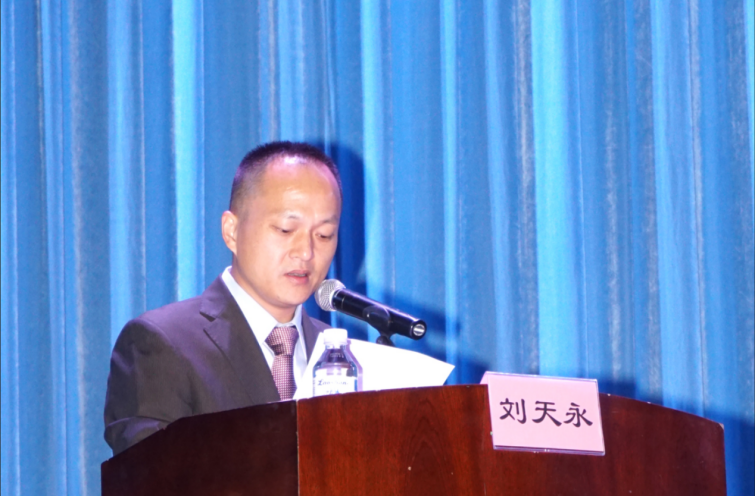
 Pictured: Director Liu Tianyong presided over the opening ceremony
Pictured: Director Liu Tianyong presided over the opening ceremony
In his presiding speech, Director Liu Tianyong of Hwuason Law Firm first expressed his gratitude to the guests and leaders for their arrival and wonderful speeches. He said that the opening of the summer academy to its fifth session would not have been possible without the support of leaders, guests and all walks of life. This summer the academy came to the beautiful Qingdao, and its number of people and scale have expanded unprecedentedly. Its influence in the industry is obvious to all. This is a major event in the development of my country's tax service industry. It will help improve the overall industry development level, change service concepts, enhance professional capabilities, and promote Business development and other aspects are of great significance. Finally, he wished all students to broaden their horizons, gain knowledge, improve their abilities and make friends in the next six days.
During the six-day course, leaders from tax authorities, well-known professors from universities, and senior professionals from top domestic and foreign law firms, accounting firms, and tax accounting firms focused on the tax system reform that has received widespread attention in current tax-related services. , "Tax Collection and Administration Law", "Personal Income Tax Law" revision, international taxation and "One Belt and One Road" corporate tax risk management and other issues were analyzed in depth from theoretical and practical aspects.

 Pictured: Vice President Li Linjun giving a lecture
Pictured: Vice President Li Linjun giving a lecture
From 9:00 to 10:30 a.m. on August 21, Li Linjun, vice president and secretary-general of the China Association of Certified Tax Agents, gave an explanation on "Reform of delegating powers, decentralizing regulation, optimizing services, and innovating tax-related services." In the first part "Deepening Reform", Vice President Li Linjun first analyzed the new regulatory regulations on tax-related professional services based on the background of deepening reform, including new regulations on administrative registration of tax-related professional institutions, new regulations on information announcements, and service credit evaluation New regulations, etc. He then introduced the latest developments in the “delegation, regulation and service” reform, tax system reform, tax collection and administration reform and international tax reform, believing that the current reform is a huge opportunity for tax lawyers and tax agents. At the same time, he also commented on the reform of social insurance fee collection and predicted that the demand for such professional services will increase significantly. In the second part "Tax-related Service Innovation", he pointed out that the tax-related service industry must establish the concept of rule of law and market concept in its development, and on the premise of providing services in accordance with the law, be guided by customer needs, carry out organizational form innovation, business Product Innovation. Finally, Vice Chairman Li Linjun introduced the path of Internet + tax-related services in the tax agent industry, and established the Tax Agent Internet + Tax-related Service Alliance to introduce capital, direct investment, and cooperative development to promote innovation and development in the tax agent industry.

 Pictured: Professor Shi Zhengwen teaching
Pictured: Professor Shi Zhengwen teaching
On the morning of August 21, from 10:30 to 12:30, Professor Shi Zhengwen, Director of the Fiscal and Taxation Law Research Center of China University of Political Science and Law, taught the course "In-depth Analysis of the Administrative Litigation Case of Pre-tax Deduction of Non-compliant Invoices of a Jiangsu Company" and conducted case analysis with students. During the tax inspection in this case, the tax authorities determined that the 23 invoices obtained by the company were "failing to obtain invoices in accordance with regulations", ordered the company to make corrections within a time limit, and imposed corporate income tax and late payment penalties. The company refused and filed a lawsuit. Professor Shi Zhengwen believes that the focus of the dispute on the determination of facts and application of law in this case lies in two points. One is whether the company's behavior of obtaining third-party invoices is an illegal issuance act, and the other is whether the invoices that do not meet the regulations can be deducted before tax. Different from the court's judgment thinking, Professor Shi Zhengwen paid more attention to whether the tax normative documents were legal and reasonable, and judged the authenticity and legality of the invoices issued by third parties from the economic substance. He believes that Article 11 of the "Implementation Rules of the Interim Regulations on Business Tax" (revised in 2008) stipulates that "if an entity operates in the form of contracting, leasing, or affiliation, if the contractor, lessee, or affiliate engages in taxable conduct, the contractor shall If the contract developer, lessor or affiliated person operates externally in the name and the contract developer bears relevant legal responsibilities, the contractor shall be the taxpayer; otherwise, the contractor shall be the taxpayer." Therefore, the invoices obtained by the company involved from the affiliated party do not belong to the agency. Invoices can be deducted before tax. He believes that if the invoice does not comply with the regulations but the expenses are actually incurred and obtained in good faith, they can be deducted before tax based on other valid documents. With the implementation of the new "Measures for the Administration of Pre-tax Deduction Vouchers for Enterprise Income Tax", the problems reflected in this case have been improved to some extent. During the teaching process, Professor Shi Zhengwen frequently asked questions to the students and interacted with them, creating a lively atmosphere.
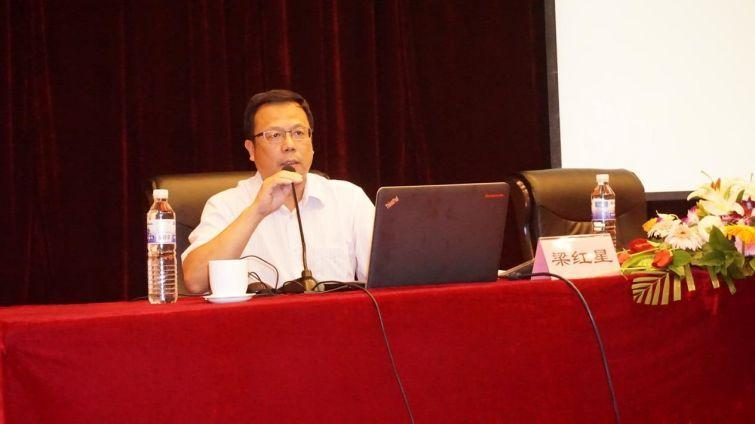
 Pictured: Mr. Liang Hongxing teaches
Pictured: Mr. Liang Hongxing teaches
On August 21, 2:00-5:00 pm, Liang Hongxing, manager of the tax department of China Gezhouba Group International Engineering Co., Ltd. and director of the Red Star Tax Studio, gave a lecture titled "Tax Risk Management and Tax Risk Management of Chinese Enterprises Going Global under the One Belt and One Road Strategy" Tax Planning". In the first part "International Tax Cooperation", Mr. Liang Hongxing briefly reviewed the history of China's tax treaty negotiations, focusing on the determination of "beneficial owners" in tax treaties, and pointed out that profits should be taxed where economic activities occur and where value is created. . In the second part, "China Tax Relevance", he briefly described the "exemption, credit and refund" rules for my country's customs export of goods, and compared the advantages and disadvantages of cross-border service VAT zero-rating and tax exemption, pointing out that zero-rating is a truly thorough taxation The preferential treatment is beneficial to reducing the operating costs of enterprises and improving the international competitiveness of cross-border services; however, the disadvantages are that the application procedures are complex, tax compliance is difficult, and tax management costs are high. Enterprises’ enjoyment of preferential tax refund policies may be subject to time and tax authority indicators. Influence. The third part, "Host Country Tax Impact," proposes to pay attention to the host country's main tax types, related tax matters, and the prevention of corporate financial and tax risks. The focus is on the organization of transfer pricing documents, host country tax preferential application procedures, exchange rate risk prevention, and thin capitalization issues. The last part, "Tax Planning Examples," combines my own personal cases to discuss the considerations for setting up a holding structure, including tax treaties, foreign tax credit policies, controlled foreign companies, regulations on resident taxpayer status, thin capitalization, and transfer pricing. wait.

Pictured: Lawyer Xiao Wen teaching
From 8:30 to 11:30 a.m. on August 22, Xiao Wen, executive director of Hwuason (Shenzhen) Law Firm, gave a lecture titled "Corporate Tax Planning Strategies and Cases." Attorney Xiao Wen used the hot topic of tax audit in the entertainment industry as an introduction to explain the three types of activities of tax evasion, tax avoidance, and tax planning in a simple and easy-to-understand way. He first discussed with the students the current situation of transferring tax risks through "tax package clauses" in contracts and avoiding tax obligations through approved collection. It is pointed out that tax planning must first respect the law and relevant tax regulations. Only on the premise of respecting the law can good tax planning be produced. Next, he discussed with the students the risks and opportunities of corporate tax planning under China's tax system. He believed that one of the more obvious flaws of China's tax system is that the tax statutory principle has not been substantially implemented, which is reflected in the long tax legislative authorization period and tax The legal level is too low and the legal system is fragmented; tax regulations are mostly promulgated in the form of departmental normative documents. The legal level is low, there may be conflicts and contradictions between normative documents, and the tax and enterprise positions are different, which leads to tax and enterprise disputes. One of the main causes. The opportunity lies in the application of tax preferences. Tax lawyers and tax agents should carefully sort out various domestic tax preferential policies, and work with tax authorities to promote the improvement of China's tax system through tax planning, tax dispute resolution and other methods. Finally, he shared with the students the successful planning cases implemented in his career, especially the planning cases in which tax benefits were obtained by voluntarily giving up tax preferential policies, which aroused enthusiastic responses from the students.

Pictured: Lawyer Wei Zhibiao teaching
On August 22, from 1:30 to 4:30 pm, Lawyer Wei Zhibiao, CEO of Huashui College and partner of Hwuason Law Firm, gave a lecture titled "Tax Risk Management and Planning Practices of Law Firms". The course is divided into three parts, namely analysis of the current status of personal income tax and value-added tax in the lawyer industry, analysis of tax-related legal risks faced by current law firms and lawyers, and comparison of horizontal tax burdens between law firms and the industry. He pointed out that in the past, some large law firms had reached agreement on approved collection with local tax authorities, or had set up branches and transferred income, which had higher potential risks; with the announcement of the "Announcement on Cancellation of Approval and Implementation of Follow-up Management of Three Personal Income Tax Matters" 》 (State Administration of Taxation Announcement No. 5 of 2016), the tax assessment authority of the lawyer industry is automatically upgraded to the provincial tax authorities. The provincial tax authorities can formulate tax assessment and tax collection procedures for the lawyer industry in accordance with the provisions of the Collection and Administration Law and the actual local conditions. Implementation measures, and no matter which level of tax authority has the approval authority, the substantive conditions for tax collection must comply with the provisions of the Collection and Administration Law. Otherwise, the tax authorities will face law enforcement risks such as dereliction of duty caused by subsequent financial supervision and inspections, and the lawyer industry will also be subject to tax collection. Policy instability. For law firms, he suggested that they should standardize invoice management, standardize transaction processes, plan transaction contracts, and retain relevant vouchers to prevent being accused of falsely issuing special invoices. Finally, he believes that law firms should abandon traditional tax management concepts and methods. On the one hand, they should strictly control tax-related legal risks and eliminate problems such as fake invoices. On the other hand, large law firms should carry out overall tax planning strategies to reasonably reduce tax burdens.
From 6:00 to 8:30 pm on August 22, in order to strengthen business development and experience exchange among students, this summer academy held a special salon on "Business Development and Cross-border Cooperation of Tax-Related Professional Services". The trainees spoke enthusiastically, exchanged their thoughts and experiences, and spoke freely about the prospects and broad market of tax-related professional service business expansion and cross-sector cooperation.
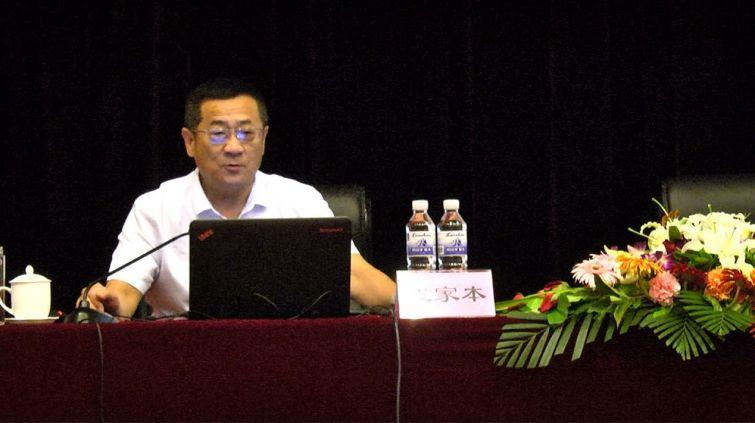
 Pictured: Lawyer Wang Jiaben teaching
Pictured: Lawyer Wang Jiaben teaching
From 8:30 to 12:00 on the morning of August 23, lawyer Wang Jiaben, a partner of Beijing Tianchi Juntai Law Firm and a legal advisor to the State Administration of Taxation, gave a lecture entitled "National Tax Dispute Legal Service Trends and Latest Case Analysis". Lawyer Wang Jiaben disagrees with the current court’s view that “courts remain modest about the intensity of fact-based review of tax enforcement actions.” He believes that such a view should be changed because the final resolution of tax disputes is through administrative litigation. The court makes a decision, and tax disputes are mainly disputes over tax entities. If the court does not conduct an in-depth review of the tax entity issues, it cannot fundamentally resolve the tax disputes. The General Office of the State Council proposed in the "Plan for Deepening the Reform of the National and Local Tax Collection and Administration Systems" to "strengthen the professional construction of the trial team for tax-related cases, use relatively fixed judges and collegial panels to hear tax-related cases, and implement the system of tax legal advisors and public lawyers." It is a concrete and effective measure to change the court's concept of legal modesty in reviewing tax cases. In the case explanation section, he focused on legal application issues such as tax recovery period, pre-tax deduction of corporate income tax, tax priority, and identification and calculation of the nature of tax late payment surcharges. He summarized these issues as the consistency of substantive review and judicial review of administrative litigation of tax disputes. He pointed out that the consistency of tax judicial unification and tax judicial review is a concrete manifestation of the legal principle of taxation. On the one hand, it is suggested that the Supreme Court should clarify universal tax law application issues through judicial interpretations, guiding cases, guidelines, rules, opinions and other effective means; on the other hand, it should be clarified through judicial interpretations. From the perspective of trial professionalization, tax courts should be established as soon as possible, and when conditions are met, tax courts should be established and tax cases heard by judges with tax expertise to safeguard national tax interests and the legitimate rights and interests of taxpayers.
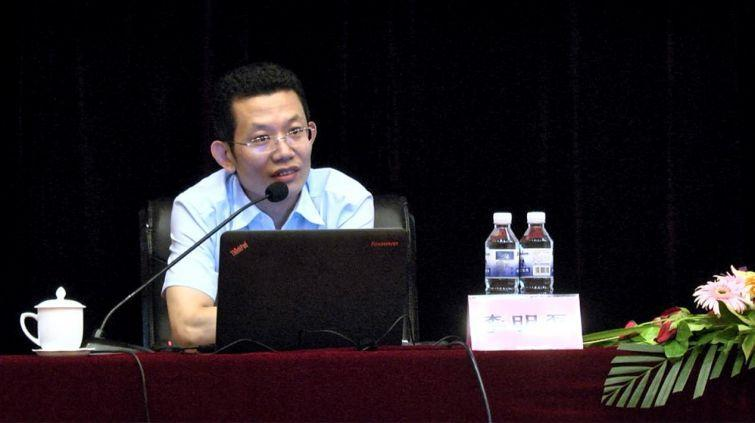
 Pictured: Director Li Minglei giving a lecture
Pictured: Director Li Minglei giving a lecture
On August 23, from 1:30 to 4:30 pm, Li Minglei, Director of the Joint Punishment Management Office for Tax-Related Violations of the State Administration of Taxation, gave a lecture on the topic of "Practice and Thoughts on Tax Violation Blacklists". Director Li Minglei first introduced the tax illegal blacklist system to the students using a promotional video. He introduced that tax violations such as tax evasion, evading the recovery of tax arrears, defrauding export tax refunds, and falsely issuing special value-added tax invoices will be the main targets of the "blacklist." Once entered into the blacklist, the names of legal persons and other organizations, unified social credit codes, or The taxpayer's identification number, registered address, legal representative, person in charge or the name, gender and ID number of the actual responsible person determined by a court judgment and the directly responsible financial personnel will be made public as a permanent credit record of the taxpayer save. Punishment measures for legal persons and natural persons included in the blacklist include: direct tax credit rating of D, being blocked from leaving the country by the public security department, being restricted from financing by financial institutions, being included in the list of dishonest persons subject to execution by the court in accordance with the law, and prohibiting some high-consumption behaviors Wait for 28 items. He believes that the "blacklist" is highly practical, highly recognized by social entities, and has an obvious regulatory effect on economic and social life, making it a priority for government management. Finally, he used a "blacklist" case to warn the students that the legal representative of the company has important responsibilities and should not lose the big for the small, which was widely recognized by the students.


Pictured: Lawyer Ni Yongjun giving lectures
On August 24, 8:30-11:30 a.m., Lawyer Ni Yongjun, partner of Zhonglun Law Firm, and Lawyer Gao Rufeng jointly explained "Difficult practical issues of tax-related Professional Services for Foreign-invested Enterprises". Two experts from the foreign investment enterprise investment entry, operation period, investment exit three links to explain. It is pointed out that the application of tax treaties should be fully considered in the selection of investment structure, and the impact of commercial and policy environment should be considered in the selection of establishment location. When explaining the choice of capital structure, he compared full capital investment with capital + shareholder loans and proposed that in the case of taking into account the tax treaty, a reasonable choice of capital + shareholder loans can effectively reduce the tax burden of enterprises. Then, he compared the differences in tax burden between asset acquisition and equity acquisition, domestic acquisition and overseas acquisition, direct acquisition and indirect acquisition under merger and reorganization, and pointed out that while using equity acquisition and overseas acquisition strategies to reduce tax burden, it is necessary to pay attention to the principle of independent transaction. He also discussed the tax issues of foreign executives with the participants, and raised the problem with the 183-day rule for determining tax residency status. Next, he introduced the tax burden comparison of different investment exit mechanisms, pointing out that whether foreign investors sell middle tier companies or foreign investors sell business units abroad, they all involve the matters of Announcement 7, and the overall sale of business units is more likely to be regarded as a transaction arrangement with reasonable commercial purposes. Finally, the two lawyers and the students exchanged ideas on how to be a foreign-related tax lawyer, and the atmosphere was warm.
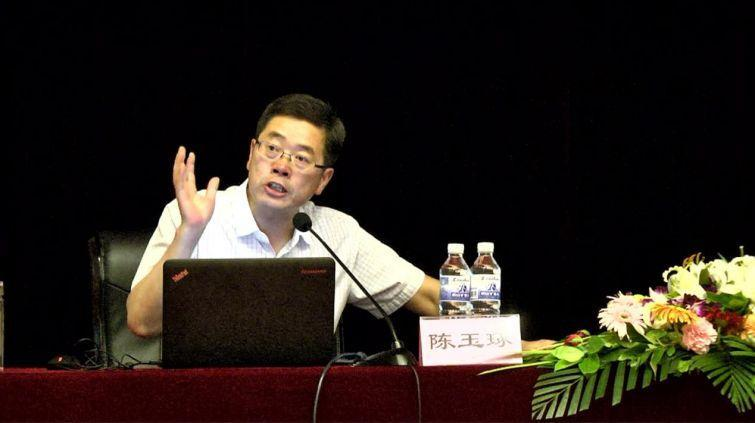
 Pictured: Professor Chen Yuzhuo teaching
Pictured: Professor Chen Yuzhuo teaching
On August 24 from 1:30 PM to 4:30 PM, Professor Chen Yuzhuo from the Tax Cadre Training College of the State Administration of Taxation gave a lecture entitled "Merger and Reorganization Tax Policy and Case Analysis". Professor Chen Yuzhuo first introduced the basis of tax policies for mergers and acquisitions and reorganization, and analyzed the application of tax policies for asset acquisition and asset transfer, emphasizing the relevant policies such as no value-added tax in line with the conditions of asset reorganization, special tax treatment for enterprise reorganization, and no land value-added tax for shares priced in restructuring and reorganization. Next, he shared with the students the "A relay restructuring case", through the case analysis of equity acquisition and equity transfer tax policy application. Finally, he analyzed the tax policy and tax planning practice of enterprise merger and division through the reorganization case of Guangzhou Pharmaceutical Industry and the high-speed reorganization case of Northeast China. During the period, Professor Chen Yuzhuo frequently interacted with the students, guided the students to think, and the scene atmosphere was active.
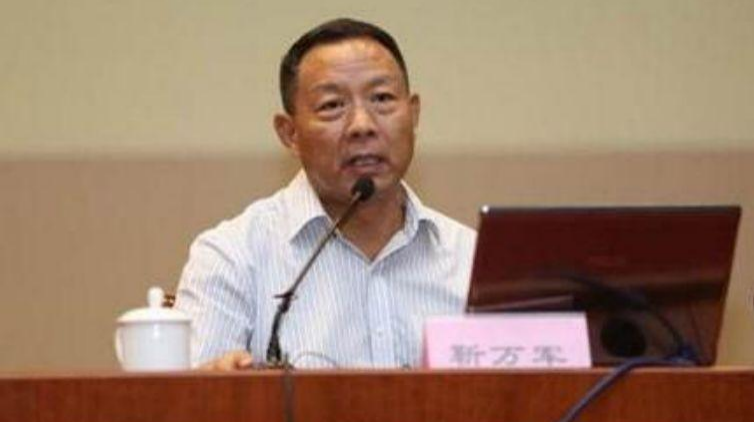
 Pictured: Deputy Director Jin Wanjun giving a lecture
Pictured: Deputy Director Jin Wanjun giving a lecture
From 8:30 to 11:30 a.m. on August 25, Jin Wanjun, deputy director of the Policy and Regulations Department of the State Administration of Taxation, gave a lecture titled "Outstanding Issues in Taxation Rule of Law and Basic System Construction". Deputy Director Jin Wanjun expressed unique insights on outstanding issues in the implementation of "tax rule of law" such as tax statutory regulations and taxpayer protection, as well as the basic legal construction of tax collection and management such as tax preemption and reconsideration of disputes over tax administrative actions. He spoke from a high position about solutions to these outstanding problems and how to build a basic legal system for taxation, striving to strike a balance between safeguarding taxpayers' rights and stabilizing national tax revenue. Deputy Director Jin Wanjun’s speech received frequent applause from the students.

Pictured: Professor Yang Xiaoqiang teaching
On August 25, from 1:30 to 4:30 pm, Yang Xiaoqiang, professor of tax law and economic law at Sun Yat-sen University School of Law, gave a lecture titled "Several Difficult Theoretical and Practical Issues in Value-Added Tax". Professor Yang Xiaoqiang first introduced the principles of VAT from the scientific nature and legal elements of VAT. Afterwards, he shared three key questions with the students. The first is valuation in VAT. According to Article 44 of the "Implementation Measures for the Pilot Program of Replacing Business Tax with Value-Added Tax", tax authorities are empowered to treat taxpayers who engage in taxable activities that are obviously too low or too high in price and do not have reasonable commercial purposes according to the taxpayer or other taxpayer's recent The average price of similar services, intangible assets or real estate sold during the period is determined. He discussed the tax authorities' valuation methods for taxpayers' taxable behavior and pointed out the existing problems. The second is the difference between goods and services under VAT law. He compared EU VAT and pointed out the broad scope of EU VAT “services”. The third is the definition of intangible assets in the value-added tax law. Through some interesting small cases, he discussed the huge role of intangible assets in corporate asset evaluation and the adverse effects of corporate liquidation, which caused bursts of laughter in the venue and fully mobilized the enthusiasm of the students.
From 6:00 to 9:00 pm on August 25, in order to guide students to pay attention to and discuss the reform of the fiscal and taxation laws in the new era, this summer academy held a special salon on "Hot Issues in the Amendment to the Personal Tax Law and Tax-related Service Innovation", and was hosted by Hua Liu Tianyong, director of the Tax Law Firm, presided over it, Professor Shi Zhengwen spoke as the keynote speaker, and Zhang Shoudao, director of the Individual Taxation Division of Qingdao Municipal Taxation Bureau, spoke as a guest. Professor Shi Zhengwen introduced the background and main changes of this revision of the Personal Income Tax Law, and discussed key issues, such as the unclear definition of "one tax year" and "one hundred and eighty-three days" for resident individual taxpayers, etc. question. Director Zhang Shoutao introduced the latest developments in the amendments to the Personal Income Tax Law and suggestions for revisions to key issues to the trainees. Afterwards, five student representatives came to the stage to speak, share their views and engage in interactive exchanges. The atmosphere in the venue was warm.
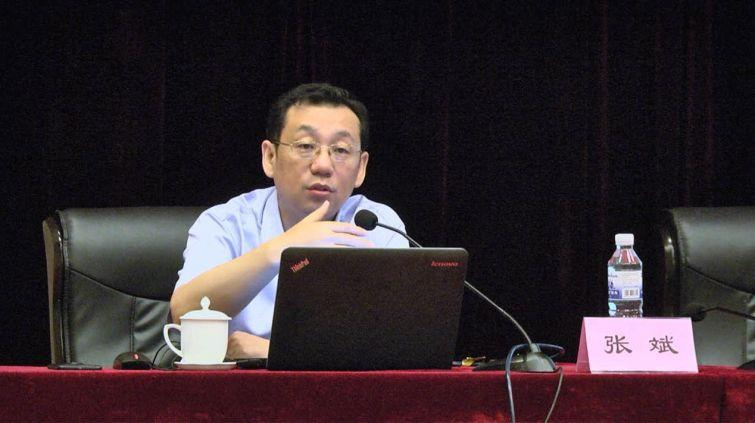
Pictured: Director Zhang Bin teaching
From 8:30 to 11:30 am on August 26, Zhang Bin, director and researcher of the Taxation Research Office of the Institute of Financial Strategy, Chinese Academy of Social Sciences, gave a lecture on "Frontier Issues in Tax Reform in the New Era" to the students. He first analyzed the original macroeconomic issues for the students, including the imbalance between capital income and labor remuneration, the trend of diminishing marginal propensity to consume, the Matthew effect and economic crisis, the trade-off between fairness and efficiency, the importance of educational equity, etc. Director Zhang Bin used various icons to conduct international comparisons of tax structures and introduced the background and differences of Trump's tax cuts in the United States. Through a horizontal comparison between the U.S. tax reform and China's tax system, he analyzed the important impact of the U.S. tax reform on my country's capital flows, business environment, investment encouragement policies, and tax reductions on major tax categories. He pointed out that global tax governance must pay attention to the issues of aging, technological revolution, and digital economy. The aging of the population has a huge impact on the tax base and increases the burden of government expenditures; artificial intelligence will lead to an increase in differences in labor remuneration; the information economy and e-commerce have also had an impact on the value-added tax system. Finally, he shared with the students the hot issues of my country's current tax system reform, including the optimization of the tax system after the business tax-to-VAT reform, involving the reform of specific taxes such as consumption tax, resource tax, environmental tax, real estate tax, and personal income tax.

Pictured: Judge Liang Fengyun giving a lecture
On August 26, from 1:30 to 4:00 pm, Judge Liang Fengyun, a judge of the Administrative Tribunal of the Supreme People's Court, gave a lecture titled "Lecture on Key Provisions of Litigation Interpretation". Judge Liang Fengyun mainly explained six major issues, the first is to implement and implement the central decision-making and the new law; the second is to regulate and guarantee the parties' exercise of litigation rights in accordance with the law; the third is to supervise and promote the administrative agencies to exercise their powers in accordance with the law; the fourth is to strengthen and guarantee the legality review of the courts The fifth is to deepen and promote the reform of the administrative litigation jurisdiction system; the sixth is to promote and ensure the substantive resolution of administrative disputes. In regulating and protecting the parties' exercise of their rights to litigate in accordance with the law, he proposed to clarify the third party's appeal and retrial application procedures to protect the legal rights of the third party; to clarify the prosecution time limit system to promote the timely and correct exercise of the rights by the parties. In supervising and promoting administrative agencies to exercise their powers in accordance with the law, he pointed out that the rules for determining the qualifications of diversified defendants should be clarified to ensure effective judicial supervision of public power acts; continue to promote the system of review agencies as co-defendants and promote administrative review agencies to perform supervisory effectiveness; and Normative documents are subject to review to ensure that administrative violations are dealt with at their source, strengthen the legal effectiveness of judicial recommendations, and promote administrative agencies to achieve good laws and good governance. In promoting and ensuring the substantive resolution of administrative disputes, he advocated promoting responsible persons to appear in court to respond to disputes and promoting the substantive resolution of disputes; hearing related civil disputes together and resolving incidental civil disputes; enriching the types of adjudication and strengthening the substantive effectiveness of adjudication; and refining compensation. Rules of Evidence in Cases.
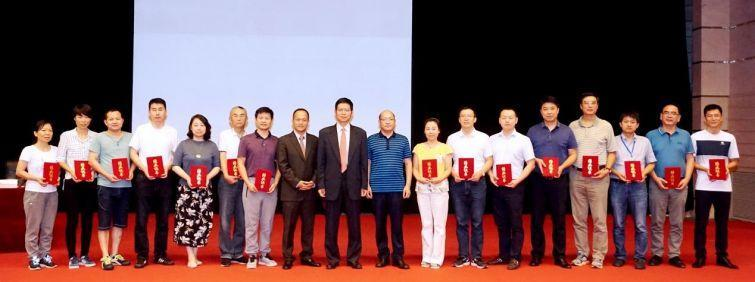
Pictured: Graduation ceremony
At 4:00 pm on August 26, "The 5th China Tax Lawyers, Tax Agents and Tax Law Graduate Students Summer Academy(2018)" course concluded successfully and the graduation ceremony was held. The graduation ceremony was hosted by Liu Tianyong, deputy director and secretary-general of the Financial and Taxation Law Professional Committee of the All-China Lawyers Association and director of Hwuason Law Firm. Professor Shi Zhengwen of the Financial and Taxation Law Research Center of China University of Political Science and Law and Song Guangzhen, deputy director of the Training Department of the Chinese Association of Certified Tax Agents, delivered speeches respectively. Professor Zhengwen issued completion certificates to students who passed the examination.
At the graduation ceremony, lawyer Liu Tianyong expressed warm congratulations to the students who successfully completed the course on behalf of this summer academy, and expressed his heartfelt thanks to all the teachers who taught them. In his speech, he said that over the past five years, the Summer Academy has been adhering to and demonstrating three major concepts and values: first, focusing on professional improvement and cultivating reserve talents; second, advocating cross-border cooperation and promoting industry integration; third, promoting the rule of law in taxation and realizing social progress. He hopes that while applying new knowledge and new experiences, all students will actively pass on the values of the summer academy, promote the development of tax-related services in various places, and contribute to the legalization of taxation in various places.
Song Guangzhen, deputy director of the Training Department of the Chinese Association of Certified Tax Agents, expressed his gratitude to the Fiscal and Taxation Law Professional Committee of the All-China Lawyers Association, the Fiscal and Taxation Law Research Center of China University of Political Science and Law, and Hwuason Law Firm on behalf of the Chinese Certified Tax Agents Association. He said that the holding of the summer academy is of great significance to the construction of my country's tax rule of law and plays a major role in improving the overall professional level of my country's tax lawyers and tax agents. He congratulated the students who successfully graduated and wished the Summer Academy better success.
In his closing speech, Professor Shi Zhengwen of the Fiscal and Taxation Law Research Center of China University of Political Science and Law taught the students not to forget their original aspirations and stick to the bottom line. He hoped that the students could become inheritors and evangelists of the spirit and ideas of the summer academy and contribute to the advancement of taxation law. Finally, he expressed his gratitude to Hwuason Law Firm, the organizer of the event, and to the conference staff for their hard work. He expressed his joy to the students who worked hard and forgot to eat and sleep, and expressed his hope that the summer academy will reach a higher level.


Pictured: Taking a group photo
Since its inception, the Summer Academy has been successfully held four times in 2014, 2015, 2016 and 2017. This summer academy went out of Beijing for the first time and came to the beautiful coastal city of Qingdao. During the six days of intensive study and training, the organizer arranged a team of domestic "star" teachers to teach. The students not only learned cutting-edge tax law theory and They are full of practical business knowledge and useful information. During the study, they also exchanged experiences and feelings about tax law services and tax legalization construction, and made deep friendships. The successful holding of this summer academy comes at a critical year for my country to implement the "tax legal principle" after the 19th National Congress of the Communist Party of China. Against the background of such profound changes, the tax-related professional services market is facing great expansion and fundamental transformation. Only by vigorously developing tax-related professional services and focusing on promoting innovation and upgrading of tax-related professional services can we adapt to the new positioning, new situation and new business of the tax law service market in the new era. We are pleased to see that a large number of tax lawyers, tax agents and tax law graduate students trained since the opening of the Summer Academy are becoming the mainstay of the tax rule of law reform in various places, improving the industry standards of tax lawyers and tax agents, and playing a leading role in the booming tax-related industry in China. Shine in professional services. In the future, the Summer Academy will continue to uphold the values of "openness and inclusiveness" and serve the development of the tax-related service industry and the construction of national taxation legalization!





